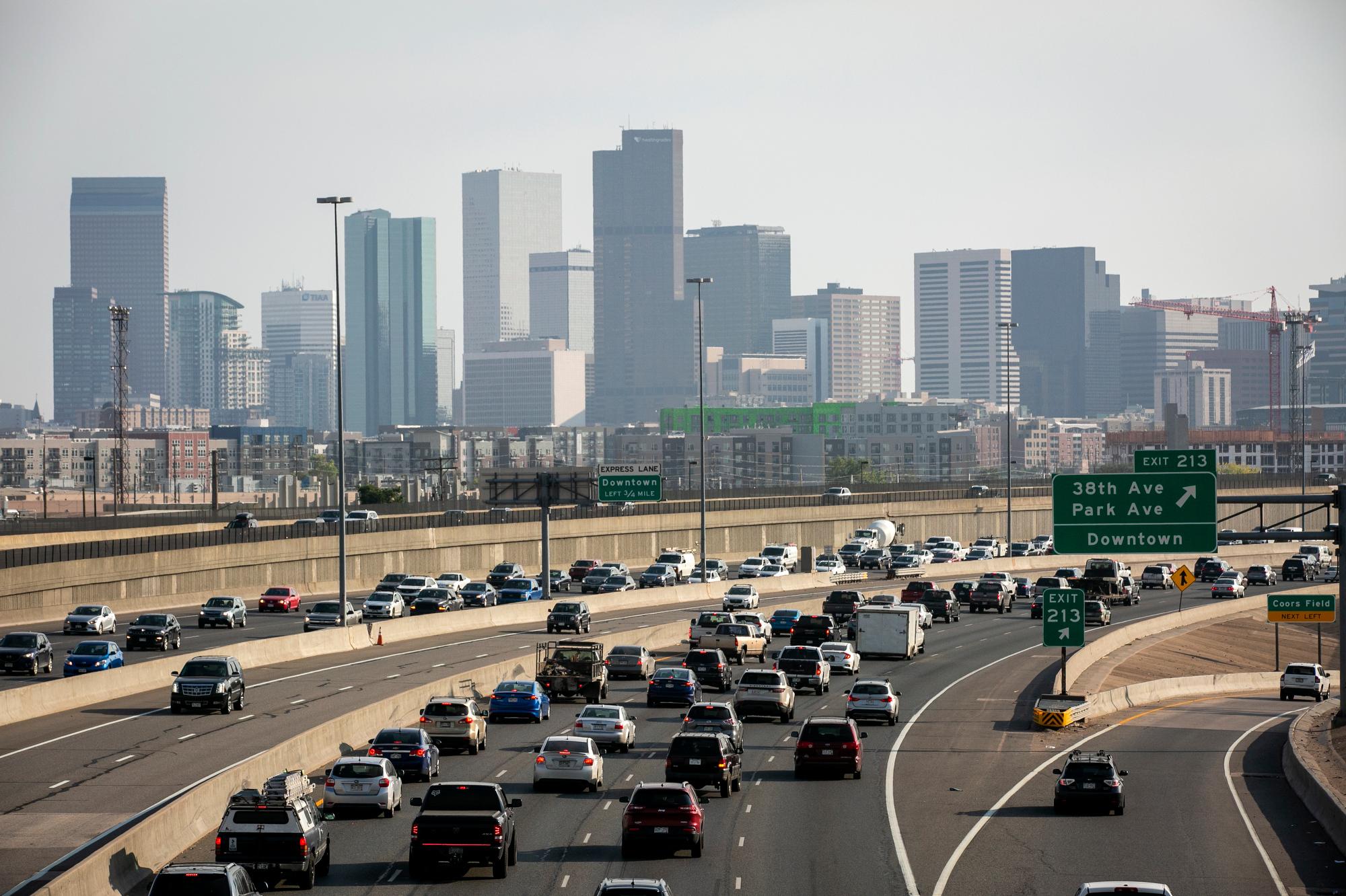
The $900 billion pandemic relief bill Congress passed late last year will likely mean hundreds of millions of dollars for Colorado’s transportation systems.
The state Department of Transportation estimates it will receive $150 million from the stimulus package and an omnibus appropriations bill.
The state Transportation Commission on Monday approved a proposal to spend that on more than a dozen shovel-ready projects, including $9.7 million for new noise walls along Interstate 25 in the Denver region and $25.5 million for a new grade-separated interchange at North Powers Boulevard and Research Parkway in Colorado Springs.
The chosen projects are meant to take a “meaningful bite” out of the department’s 10-year plan, executive director Shoshana Lew said.
“We’re not trying to do everything, because we just can’t,” Lew said Monday. “But to try to make sure that, particularly given the job creation impacts of these projects, they are spread out in a way that reflects [regional equity].”
Other improvements include repairs to U.S. 50 between Grand Junction and Delta, a new transit hub at I-25 near Berthoud and a number of repaving projects on rural roads across the state. $2 million will also be set aside for CDOT’s Revitalizing Main Streets program, which has helped cities create pandemic-era public spaces like car-free streets.
The Denver Regional Council of Governments will direct about $36 million worth of spending in the metro area through its latest transportation improvement program. The money could move some planned projects forward faster, and go toward currently unfunded projects.
Congress also appropriated $14 billion for cash-starved transit agencies across the country. The Regional Transportation District in Denver, the state’s largest, hasn’t yet learned how much it will receive. But industry experts, including at the TransitCenter and the Eno Center for Transportation, estimate RTD will receive around $210 million.
RTD cut $140 million from its 2021 budget and plans to lay off about four hundred workers before a new service plan kicks in next week. But CEO and General Manager Debra Johnson said she is optimistic the federal cash will help it retain some frontline employees.
“We cannot discern specific numbers of employees at this time; however, this funding allows us to provide supplemental service on some of our busier bus routes as we continue to assess our ridership and opportunities to better optimize our service levels,” she said in a statement.
Even if the money solves RTD’s immediate budget issues, the agency is facing long-term problems due to large debt payments, and maintenance and operations costs.
TransitCenter also estimated that $1.8 million would go to Fort Collins’ transit system, while others in Greeley, Colorado Springs, Pueblo and Grand Junction wouldn’t receive anything. Smaller agencies, like Pueblo’s, generally haven’t seen budget issues nearly at the same level as their larger peers, and the new stimulus bill reflects that.
“The overall effect is to better target the relief spending to each agency’s operating deficit,” Ben Fried, spokesman for TransitCenter wrote in an email.
CDOT will also receive an as-of-yet-unknown amount of money for rural transit systems across the state.








